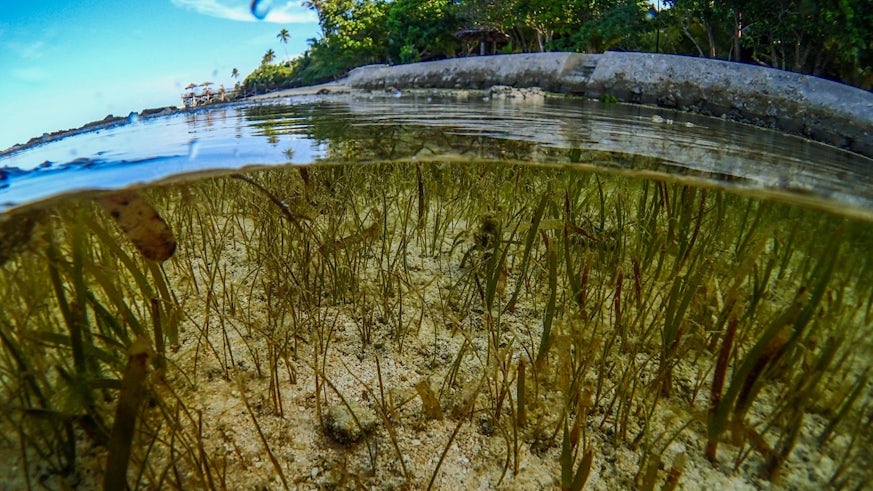Call for seagrass to be protected
3 August 2018

Seagrass experts from Cardiff University and Swansea University are calling for seagrass to be protected, in a piece published in the journal Science.
Dr Leanne Cullen-Unsworth of Cardiff University’s Sustainable Places Research Institute and Dr Richard Unsworth of Swansea University argue that seagrass conservation is crucial for climate mitigation, biodiversity protection, and food security.
Seagrasses are marine flowering plants that are found along temperate and tropical coastlines around the world. They have been called the “canaries of the sea” as, due to their sensitivity to a changing environment, their condition can be used as an indicator of the condition of coastal areas.
Seagrass provides habitat for fish, shellfish, and marine herbivores, and filter sediments and reduce wave and current energies near coasts. They also play a vital role in sustaining fisheries productivity and food security.
However, seagrass meadows are under threat from poor coastal water quality and expanding coastal populations and seagrass is being lost at a rate of 7% per year. Without protection, the rate of decline of this vital resource is likely to increase.
There is increasing recognition that seagrasses play an important part of the global and local carbon cycle, and that there needs to be more accurate estimates of global seagrass cover. To date around 300,000km2 of seagrass has been mapped around the world, but there could be up to 4 millionkm2.
The authors argue that with the right support, seagrass meadows can thrive. But maintaining momentum in seagrass science, building on recent advances, and increasing public awareness is crucial for the long-term viability of seagrass systems.
You can read the summary at Science's website.